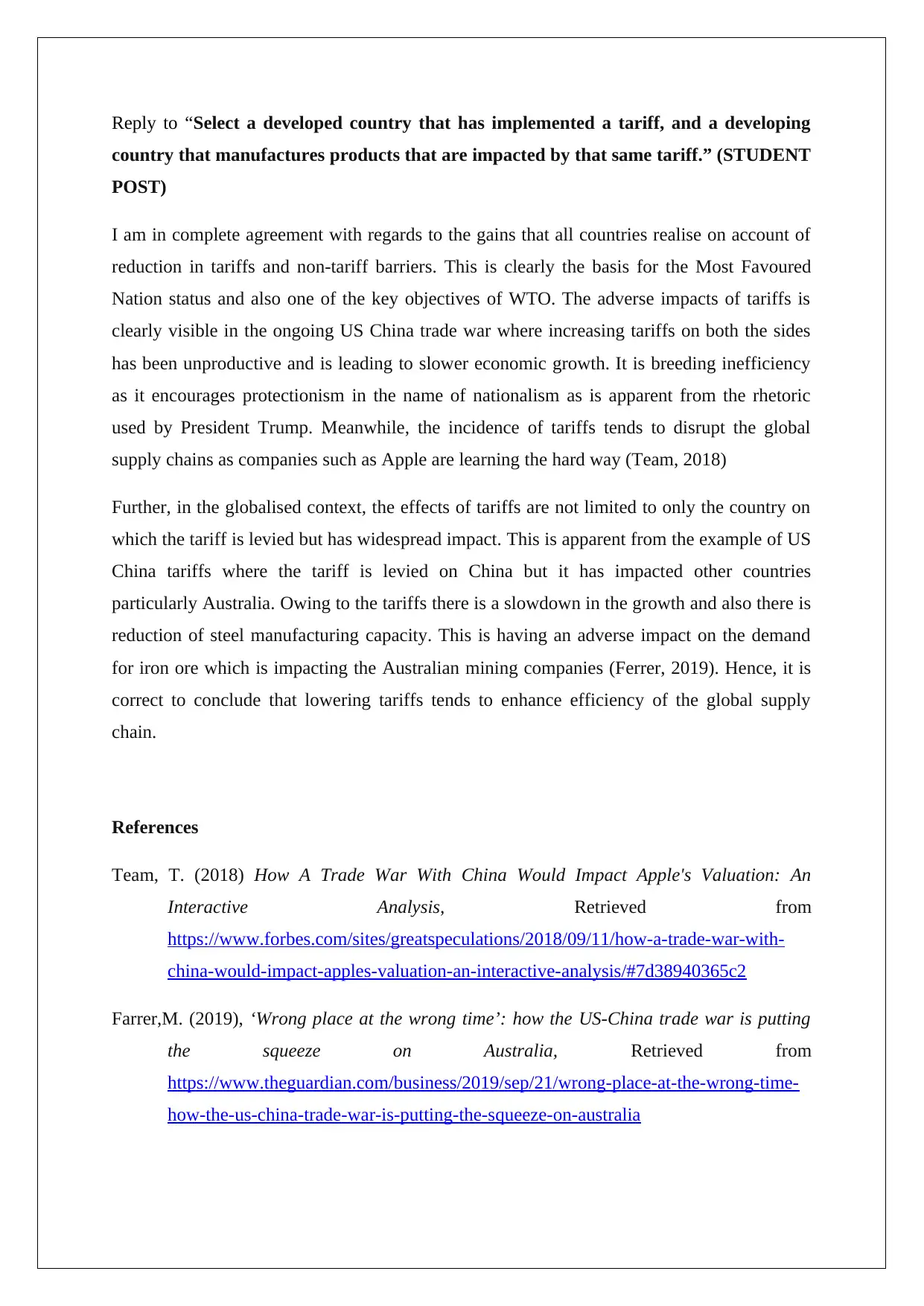A Comparative Analysis of Tariffs and Their Impact on Global Trade
VerifiedAdded on 2022/10/06
|1
|347
|11
Discussion Board Post
AI Summary
This discussion post analyzes the impact of tariffs on global trade, focusing on the effects of tariffs on both developed and developing countries. The post highlights the negative impacts of tariffs, referencing the US-China trade war as a case study where increasing tariffs have led to slower economic growth and disrupted global supply chains. The post also examines how tariffs impact countries beyond those directly involved, such as Australia, which has experienced reduced steel manufacturing capacity and demand for iron ore due to the tariffs. The author argues that lowering tariffs enhances the efficiency of the global supply chain. The post cites references from Forbes and The Guardian to support its arguments.







![[object Object]](/_next/static/media/star-bottom.7253800d.svg)